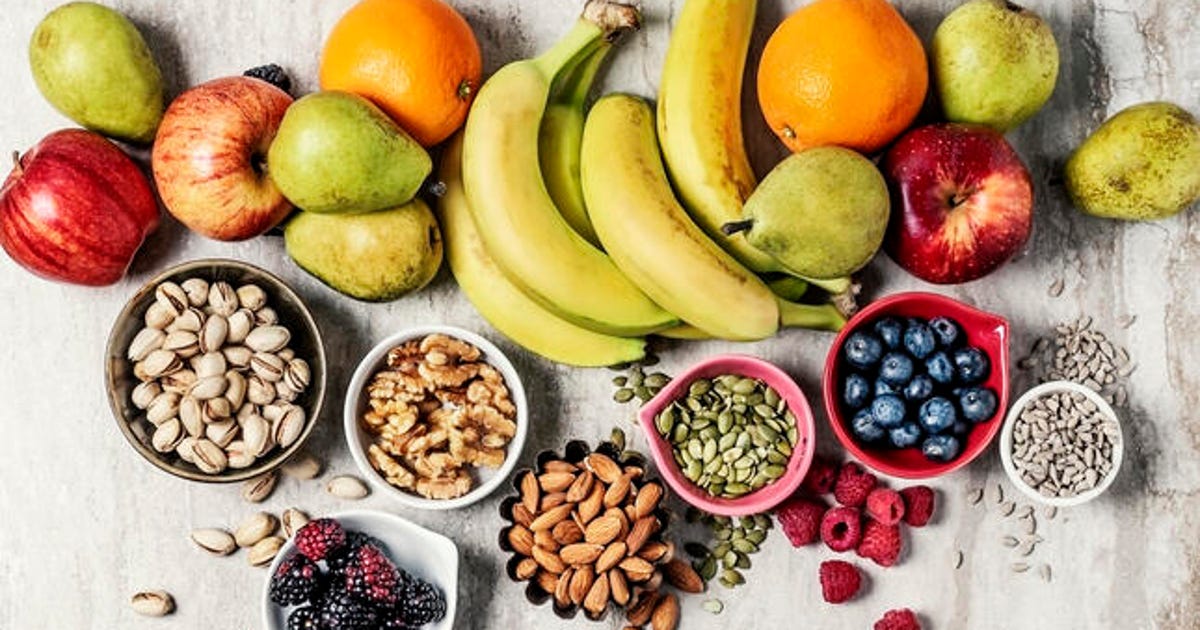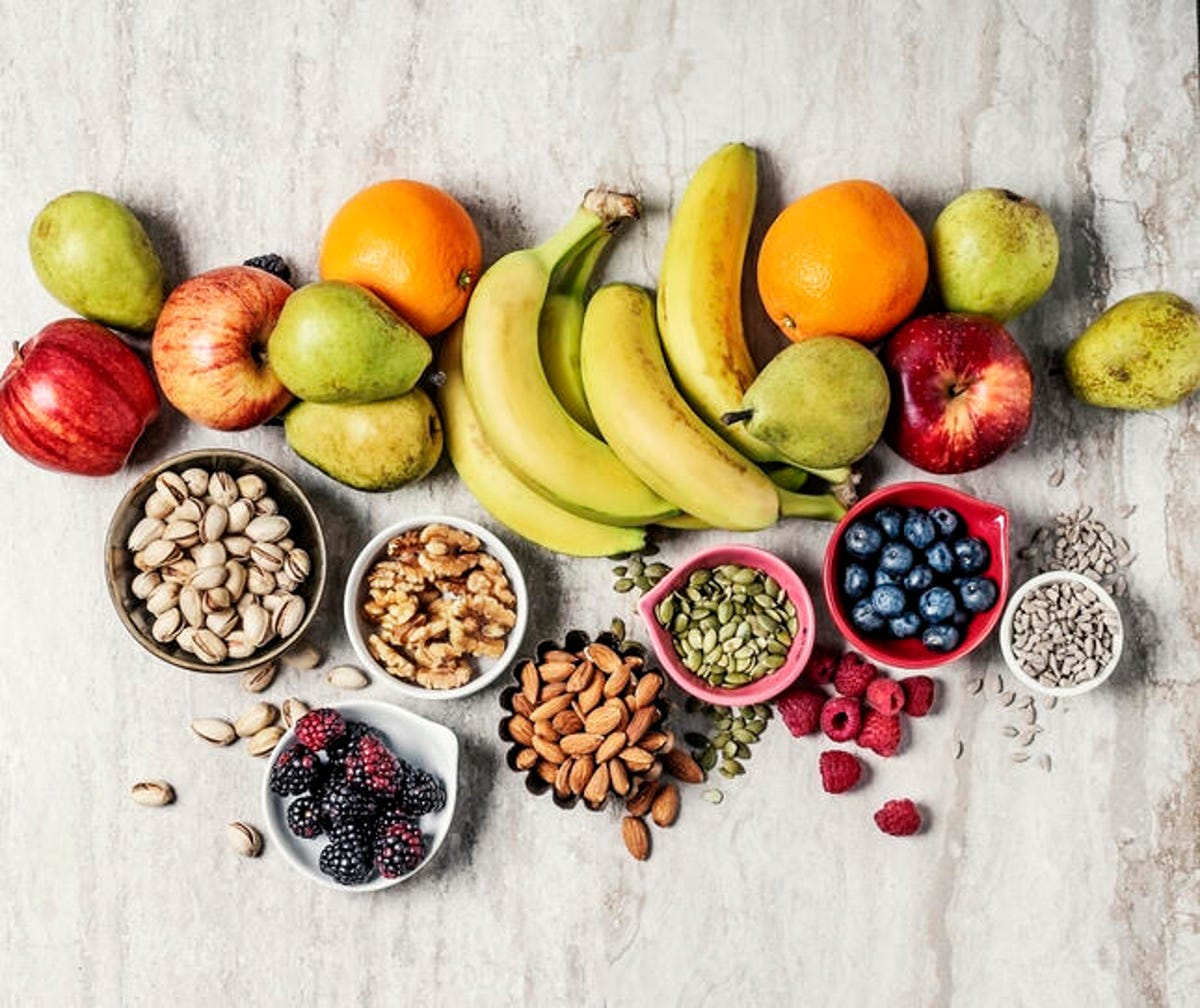Eat These Collagen-Rich Foods Instead of Taking Supplements

There is no “fountain of youth”, but collagen certainly has that reputation. Found in all kinds of pills, powdersliquids and gummies with the promise of better skin and nails, collagen is marketed as the key to staying young, not to mention its gut health benefits.
But before you accept the hype, it’s important to understand what collagen actually is and the role it plays in your body. While it’s tempting to pop a pill for better skin and other benefits, you’re better off getting collagen from the foods you eat. We explain all that and more below.
What is collagen and what is it used for?
Collagen is the most abundant protein in the body, and therefore quite important to maintain your body’s functions. Dietitian and nutritionist Tony Castillo explains that the best way to think of collagen is “like a glue to hold things together.” It is the main building block of tendons, ligaments, bones, muscles and skin. It also helps your body rebuild after injuries, especially at sites such as tendons, ligaments and muscles. Take a moment now to thank collagen for literally keeping your body together.
Your body creates its own collagen by combining amino acids. The process also uses vitamin C, zinc, and copper, so you can support natural collagen production by eating a well-balanced diet (more on that later).
Do I have enough collagen?
As we age, our bodies naturally begin to produce less collagen. Although wrinkles and body aches are part of the aging process, you might be wondering if a lack of collagen is to blame for your ailments.
Castillo says the following signs indicate you may be lacking vital protein:
- Less flexible tendons and ligaments
- Wrinkles on the skin
- weak muscles
- Worn cartilage or joint pain
- Gastrointestinal problems caused by thinning of the lining of the digestive tract
Of course, if physical symptoms are significantly interfering with your quality of life, you’ll want to see your doctor. But if you just want smoother skin and a little more pep in your step, it might be worth looking into how you can boost your collagen levels.
Do I really need collagen supplements and skin treatments?

There are many fancy skincare products on the market designed to boost your collagen, but do they really work?
Getty Images
While you could certainly try to produce more collagen naturally (more on that later), at this point you’re probably wondering if those collagen supplements and fad skin treatments actually work. I have an unsatisfactory answer to the burning question: they type of do.
First, let’s start with the supplements. Castillo recommends that active people take collagen supplements 1 hour before working out, and there is certainly scientific research to support this suggestion.
A comprehensive review of the literature found that collagen supplements can help with wound healing and skin aging, as well as increase skin elasticity and hydration. These results are only preliminary, however – much more research is needed to confirm their effectiveness. And be careful when searching online; many studies are done by companies that make collagen supplements, so you can’t trust what they say too much.
On the other hand, Castillo sees no compelling reason to invest in skin treatments designed to increase collagen. These treatments often come at a high price, and most of the research supporting them is inconclusive at best.
If you have the resources to spare, however, some treatments might be worth a shot. Some studies have shown that microneedling (which is said to increase collagen) can treat facial scars and stretch marks, while ultrasound therapy appears to be quite effective in tightening and lifting facial muscles. Again, this research is far from definitive, so consider trying collagen supplements before taking the plunge.
How can I produce more collagen naturally?

A balanced diet will promote the natural production of collagen.
Claudia Totir/Moment/Getty Images
If the world of bizarre skin supplements and treatments doesn’t appeal to you, you can definitely take a more natural approach to boosting your collagen.
The most efficient way is to go through a well balanced diet. When your body produces collagen, it uses amino acids, vitamin C, zinc, and copper. To get the necessary amino acids (Castillo specifically names proline and glycine) that you can eat eggs, bone broth, beans and meat. For vitamin Cgo for citrus fruits, berries and peppers. To eat meat, shellfish, nuts, whole grains and beans for zinc and copper.
If you had to choose one food to increase your collagen levels, it would be bone broth. When you simmer beef, chicken, or fish bones in water, collagen and other minerals leach into the water, producing a delicious, nutrient-rich liquid. Just be sure to plan ahead – making your own bone broth can take a day or two.
The information in this article is for educational and informational purposes only and is not intended to constitute medical or health advice. Always consult a physician or other qualified health care provider with any questions you may have about a medical condition or health goals.